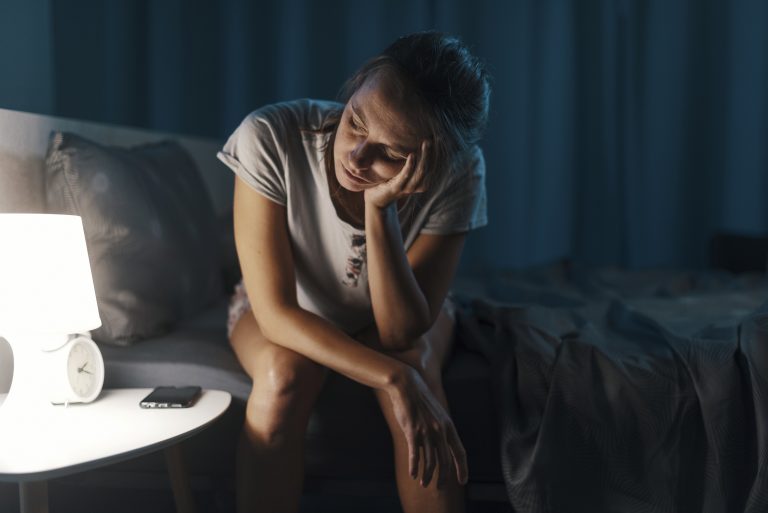We need sleep. Most of us live busy lives, and many of us try our best to avoid sleep by staying up later than we’re supposed to in order to “reclaim our time” from work, kids, and other people that take us way from the activities we want to do.
But our bodies – and our minds – absolutely need sleep, and desperately so. Sleeping is the part of the day that helps our body repair itself and function properly. So, when someone tries to sleep and can’t, it’s considered a very serious issue.
How Can Mental Health Create Insomnia?
Insomnia is almost always directly or indirectly related to mental health. While there are some cases of nutrition, medication, and other issues creating insomnia, most of the time it is related to a mental health struggle, such as:
- Anxiety
- Depression
- Addiction
- Stress
Different mental health issues cause insomnia in different ways. Anxiety is the mis-activation of our fight or flight system, which is the system our bodies use to prepare to fight or flee in the face of danger. It is understandable that we cannot sleep very well when we have anxiety, because you wouldn’t fall asleep if you’re face to face with a lion. Your body tries to keep you awake for your own safety, because it’s responding to an imaginary danger.
Stress can cause insomnia because, as we need our minds and bodies to relax if we want to rest, but stress makes us tense and guarded. Depression can cause insomnia for a host of different reasons. Some people get insomnia because of oversleeping at other times of day, and some people get insomnia because of low serotonin levels, which are necessary in higher doses to fall asleep.
There are countless ways that mental health and insomnia are directly and indirectly connected.
Why Does This Matter?
There are countless reasons that this connection between mental health and insomnia is important. But one of the most critical ones is that insomnia can also create and increase the symptoms of other mental health conditions. When a person’s anxiety keeps them awake, that insomnia reduces the brain’s ability to process stresses and emotions, which can cause the person to develop worse anxiety.
That is why it is so important to address insomnia at its source. You have to break the cycle to sleep better, and by sleeping better, you can then put yourself in a better place to address your mental health. If you’d like to learn more about insomnia treatments in Jericho, NY, contact Right Path Counseling, today.

